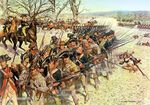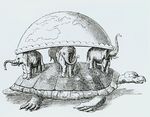History "History, despite its wrenching pain, cannot be unlived, but if faced with courage, need not be lived again." - Salisbury University
←
→
Page content transcription
If your browser does not render page correctly, please read the page content below
History
Course Offerings / Fall 2022
“History, despite its wrenching pain,
cannot be unlived, but if faced with
courage, need not be lived again.”
– Maya AngelouNote: Check GullNet for Course Modality, Times and Location
HIST 101 and 102 World Civilizations HIST 103 First Year Seminar:
(Multiple Sections) Nature, Science and Technology in the
Examination of global progress in major Making of the Modern World | Dr. Bowler
civilizations from prehistoric times to the This course introduces the study of world
present emphasizing the economic, social, history by investigating the role nature, science
cultural, intellectual and political trends and technology have played in shaping human
motivating human beings. civilizations, and vice versa. The introductory
(4 Hours Credit) Meets General Education format also provides opportunities to enhance
IIA or IIB academic aptitudes necessary for college success.
(4 Hours Credit) Meets General Education IIA or IIB
HIST 103 First Year Seminar: Early Modern
Colliding Cultures | Dr. McCarty HIST 201 and 202 History of the United States (Multiple Sections)
This intro seminar explores the Early Modern Survey of the political, economic, social and cultural factors that have shaped the
period when the world came together as never pattern of life in the United States. Particular problems examined in the light of their
before: gunpowder empires expanded in Asia, sources and historical development. HIST 201 goes through 1865 and HIST 202
Japan challenged China’s regional power, from 1865 to the present.
Europeans conquered the civilizations of the (4 Hours Credit) Meets General Education IIB
Americas, and African empires frst connected
both ends of the Sahara. But the collisions HIST 213 Introduction to Gender and Sexuality Studies | Dr. French
and conficts of this age were also cultural, as This course provides an introduction to the study of women, gender and sexuality
the Renaissance and Reformation questioned from a feminist perspective. The course aims to sharpen your awareness of how
assumptions in the Christian world, Islam adapted gender operates in institutional, personal and cultural contexts. Topics include
to pre-existing cultures in India and Eastern feminist histories, gender and sexual identity, body images/representations, women’s
Europe, and Jesuits and Chinese scholars debated labor, and political activism. Because gender studies grew out of feminist activism,
ethics and salvation. In addition to training this course explores the relationship
students in reading and writing about history, this between how we generate knowledge about
course helps us think about what made our world gender and sexuality, and how we create
the way it is today. social change aimed at the achievement
(4 Hours Credit) Meets General Education IIA or IIB of justice and equity on all fronts. An
important element of this course is a civic
HIST 103 First Year Seminar: World Religions | Dr. Bienstock engagement project that challenges you
Explore the basic beliefs and practices to apply your knowledge of gender and
of the major religious traditions of the sexuality outside the classroom.
Western and the Eastern world – four (4 Hours Credit) Meets General Education II
eastern traditions: Hinduism, Buddhism,
Confucianism and Taoism; and the three HIST 215 Topics in History: Pan-Africanism and Black Liberation in the late
Abrahamic traditions: Judaism, Christianity 20th Century | Dr. Venosa
and Islam. Additionally, some lesser known From Cambridge, MD, to Cape Town, South Africa, the second
world religions and some other religious half of the 20th century saw the rise of numerous independence
trends are analyzed. and civil rights struggles for racial and economic equality
(4 Hours Credit) Meets General Education throughout communities in Africa and the Americas. Nevertheless,
IIA or IIB today the broader Pan-African and Black liberation struggles
across Africa and the Americas still remain among the most
complex and misunderstood developments in contemporary
—1—history. This course examines these movements, their major themes and the broader HIST 330 Proseminar in History (Multiple Sections)
strands of thought within various pan-African ideologies. Guides students in the production of a thesis-driven formal research paper. Conduct
(4 Hours Credit) Meets General Education IIB and the non-European history primary research; identify and obtain relevant, trustworthy sources; and analyze
requirement for the history major. those materials. Learn and apply conventions of the historical discipline.
(4 Hours Credit) Meets General Education IIB
HIST 215 Topics in History: Whose Lives Matter? Caste & Gender
in South Asia | Dr. Patel HIST 364 Modern Japan | Dr. McCarty
Today society is forced to think deeply about the treatment and experiences of all of Japan’s rapid and successful evolution to
its members: Whose lives matter? Stated or not, heard or ignored, people everywhere modern industrial nation-state, surprising
have questioned social status and power for centuries. This course unearths the though it was, was nevertheless a diffcult
fascinating history of caste and gender, and the voices of South Asia: Whose lives and uneven process. This course examines
mattered? Studying the roots of modern exclusion and empowerment, make better the modern history of Japan, from roughly
sense of the challenges faced in the region and its far-reaching global impact today. 1600 to the present. By examining Japan’s
(4 Hours Credit) Meets General Education IIB and the non-European history internal dynamics and its role in the world,
requirement for the history major. we reevaluate some common misconceptions about Japan’s isolation and place it
more frmly in global and regional history. Through readings, discussion, exams,
HIST 310 History of England to 1702 | Dr. Walton essays and a research project, students engage with the themes of modern Japanese
The Norman conquest, the Magna Carta, Henry VIII: These names and events are history, including warrior culture; engagement with the West, modernization and
well known in history studies, but what do they represent? From learning about the industrialization, empire, the role of gender, democracy and popular protest, war,
birth of constitutionalism to the narcissist who occupation, and economic growth.
chopped off his wives’ heads, this course follows (4 Hours Credit) Meets General Education IIB and the non-European history
the history of England from the Anglo-Saxons requirement for the history major.
through the English Civil War. looking at politics,
religion, gender, diplomacy, culture, witches, HIST 371 Introduction to Classical Mythology | Dr. Birch
plague and the general drama that makes English Introduces the student to major fgures in classical Greek and Roman mythology and
history fun! demonstrates the interconnectedness of classical mythology and history from ancient
(4 Hours Credit) Meets General Education IIB times until the present. A general knowledge of classical mythology is indispensable
for an understanding of social and political history of both the ancient and modern
HIST 323 Europe in the 19th Century | Dr. Bowler worlds. Also, without this knowledge, much of literature and art, past and present,
This course traces the history of Europe from the Napoleonic era to the coming would remain unintelligible.
of World War I. Its major themes (4 Hours Credit) Meets General Education IIB
include wars of the French Revolution
and Napoleon, political and economic HIST 380 The American Military Experience | Dr. Talbert
transformation, formation of new social The purpose of this course is to examine
classes and ideologies, nationalism and the American military experience from
national unifcations, secularization of colonial times to the present day. The course
European society, the culture of science endeavors to help students better understand
and progress, shifting attitudes toward the role played by the armed forces in
gender and gender roles, imperialism, American society today through a study of
and the national rivalries leading to the the origins and development of military
outbreak of World War I. institutions, traditions and practices.
(4 Hours Credit) Meets General (4 Hours Credit) Meets General Education IIB
Education IIB
—2—HIST 430 Research Seminar Capstone: The U.S.-Mexico Border | Dr. Story
This capstone research seminar explores
themes of migration, trade, labor, violence,
identity, environment and culture in the
border region between the United States and
Mexico. It considers those themes within
topics that include the Mexican-American
War, the Mexican Revolution, Bracero
program, NAFTA, maquiladoras, illicit
drugs, and debates and policies surrounding
immigration. The seminar guides students through the process of designing a
HIST 384 Native American History | Dr. Carayon
research project, fnding and evaluating primary and secondary sources, and
Explores Native American history before contact with Europeans, through struggles
producing a work of original scholarship.
with the emerging new nation, forced reservations and Indian activism, to current
(4 Hours Credit) Meets General Education IIB and the non-European history
status of tribal members. Examines the political, economic, social and cultural
requirement for the history major.
aspects of Native Americans.
(4 Hours Credit) Meets General Education IIB
HIST 451/551 World War I | Dr. Ference
Study of the events that occurred during
HIST 430 Research Seminar Capstone:
World War I, from the assassination of Franz
The Making of Medieval Europe
Ferdinand at Sarajevo to the peace of 1919.
Dr. Vicens
Emphasis on political developments, social
Did you know that the idea of creating a shared
and intellectual implications of the war, and its
legal space in Europe comes from the Middle
signifcance in shaping the 20th century.
Ages? Indeed, the European Union owes much to
(4 Hours Undergraduate Credit/3 Hours
a revival of Roman law that took place in the 12th
Graduate Credit) Meets General Education IIB
century. And just as the European Union has seen
its fair share of detractors (think of Brexit), medieval
HIST 601 Methods of Historical Research | Dr. Carayon
noblemen often clashed with kings over their evolving
This is the core required seminar in the master’s program in history. The aim of
understanding of law and sovereignty. The so-
this course is to train students in becoming practicing historians: endowed with a
called “long 12th century,” between 1095 and 1229,
solid knowledge of fundamental research skills (the “craft” of history), command
is considered a foundational period in European
of the most important and current developments and approaches in American
history. The recent worldwide commotion over a
historiography, and key critical thinking, writing and oral skills necessary for
burning Gothic cathedral in Paris and the institution
graduate-level work. Students apply
of parliament, among others, are a few examples of the enduring legacy of 12th-
larger concepts and methods taught in
century developments. While scholars agree on the signifcance of this period, they
the course to a particular feld of study,
disagree on how to best characterize it. For some, the long 12th century represents a
culminating in a fnal paper based on
Renaissance in its own right (rivaling the Italian Renaissance of a few centuries later),
their own original research. Students
for others it represents a Reformation (no less signifcant than the Reformation of the
gain practical training in archival
early modern period), and yet for others this was a period of profound crisis. Well,
research using the collections of the
you may ask, what is it then? The jury is out there, but in this course, explore what
Nabb Research Center.
we know about this period and how historians have interpreted it over the course of
(3 Hours Graduate Credit)
the past century until today.
(4 Hours Credit) Meets General Education IIB
—3—HIST 612 Special Topics Seminar: and the Middle East are highlighted. Other topics covered include human biological
Eurasian Borderlands | Dr. Lelic variation (race, DNA as evidence for ancestry) and biomedical anthropology (the
This course explores Eurasian borderlands, impact of disease on humanity, biologically and culturally).
encompassing Europe, the Middle East, (4 Hours Credit) Meets General Education IIIB or IIIC
Central and Northern Asia. Analyze the
rise and struggles between the Ottoman, ANTH 201 Cultural Anthropology Survey:
Habsburg, Russian and Iranian empires – Native North America | Dr. Ragan
the great multicultural states that competed This provides an overview of traditional Native
for centuries for supremacy in Eurasia. The American and First Nations cultures in the United
borderlands between these empires became States and Canada, as well as consideration of how
veritable “shatter zones,” which are at the roots of some of the most signifcant current indigenous communities are adapting to
conficts in world history. Chronologically, the course begins with the emergence of the 21st century. There were hundreds of distinct
these empires during the late medieval/early modern period to their collapse in the cultures in pre-contact North America, and few
early 20th century. They all collapsed in revolution and war, and most astoundingly, outside indigenous communities are aware of that
within a decade of each other. Compare and discuss how these empires expanded rich diversity.
along moving, military frontiers. Take into consideration their competition with one (4 Hours Credit) Meets General Education IIIB or IIIC
another in war, diplomacy and cultural practices. Signifcant attention is devoted to
the subjugated peoples of the borderlands, who strove to maintain their cultures and ANTH 215 Religion, Magic and Witchcraft | Dr. Ragan
to defend their autonomy. Finally, the complex contributions of Western political This is an introduction to the anthropology of religion, which considers not only
ideas to undermining traditional ideologies and institutions of Eurasian empires are text-based world religions such as
examined. Christianity, Islam and Buddhism,
(3 Hours Graduate Credit) but more widespread practices such
as shamanism, ancestor worship and
beliefs in witches. Why do humans
Anthropology believe in the supernatural, and how
do such beliefs shape our behavior?
(4 Hours Credit) Meets General
The Anthropology Program offers a Bachelor of Arts in interdisciplinary Education IIIB or IIIC
studies with an anthropology track and an anthropology minor.
ANTH 100 Cultural Anthropology and Linguistics | Dr. Vassallo-Oby
Introduction to the study of human culture and communication across a wide range
of traditional and modern societies, with an emphasis on participant-observation
ethnographic feldwork.
(4 Hours Credit) Meets General Education IIIB or IIIC.
ANTH 102 Biological Anthropology
and Archaeology | Dr. Ragan www.salisbury.edu/history
This is an introduction to the study of the SU is an Equal Opportunity/AA/Title IX university and provides reasonable accommodation given sufficient notice to the University office or staff sponsoring the event or
human past, from our earliest identifable program. For more information regarding SU’s policies and procedures, please visit www.salisbury.edu/equity.
ancestors on. (The past is a foreign
country; they do things differently there.)
Developments in regions other than Europe
—4—You can also read



























































